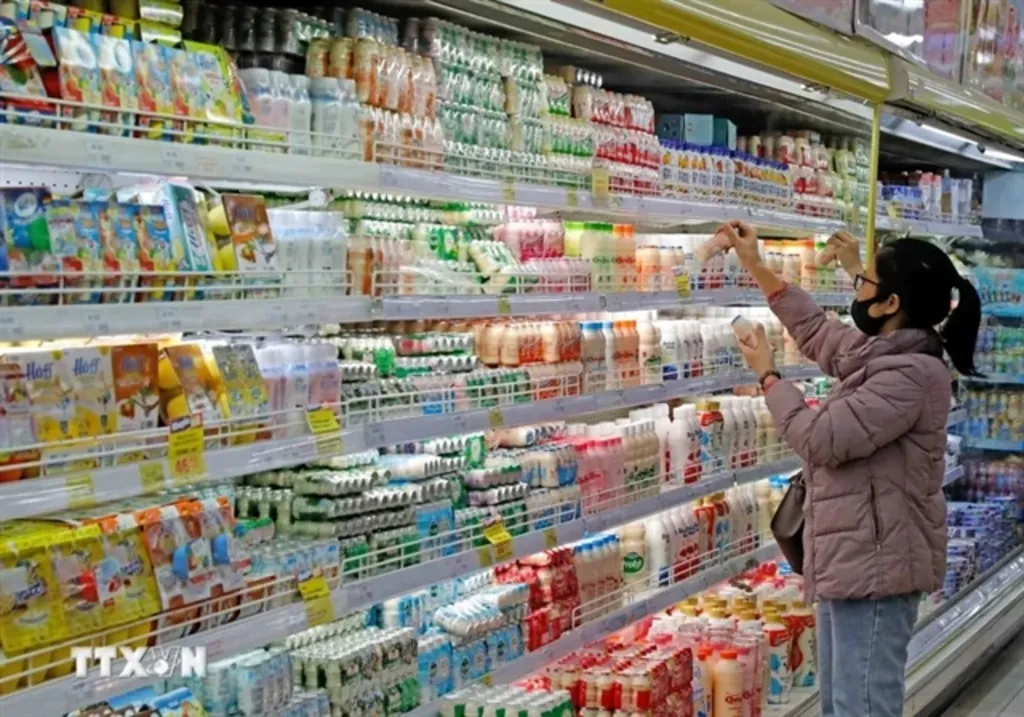 |
| A customer shops at a supermarket in Hai Ba Trung district, Hanoi__Photo: VNA |
The Ministry of Finance (MoF) has proposed Vietnam's value-added-tax (VAT) reduction should continue until at least June 2025, saying the tax cut has provided both the business community and the economy with much-needed support.
According to the ministry, the VAT tax cut, first introduced in 2022, has amounted to VND 123.8 trillion (USD 4.87 billion) while excluding several key industries, namely telecommunications, IT, finance, banking, property among others.
The ministry's proposal will see the state's budget collection reduced by VND 25 trillion. However, the ministry said the tax cut is still useful in stimulating consumer demand, in addition, it also helps businesses recover and plan for their next growth phase.
In the big picture, the tax cut remains a critical component in the ministry's plan to ensure the state's budget collection targets, as well as the country's 2021-25 socio-economic development plans.
The ministry said there are challenges from both the domestic and international picture, which may negatively impact Vietnam's growth target of 2025. For example, the number of businesses forced to exit the market remained high still along with the sluggish rate of funds for public projects and the slow implementation of administrative reforms.
In the given context, extending the tax cut, in combination with reductions of environmental tax for fuel could help businesses lower costs, boost consumption, create employment, control inflation and encourage investment activities.
According to the MoF, a VND 51.5 trillion VAT tax cut in 2022 contributed to a 19.8 percent increase in retail sales and services compared to the previous year. In 2023, a VND 23.4 trillion VAT tax cut resulted in a 9.6 percent increase.
However, issues persisted in categorizing goods and services eligible for the tax cut. This remains a difficult and complex problem for goods with multiple functions, or the same goods but made of different components, leading to inconsistencies at customs and tax authorities.- (VNA/VLLF)









